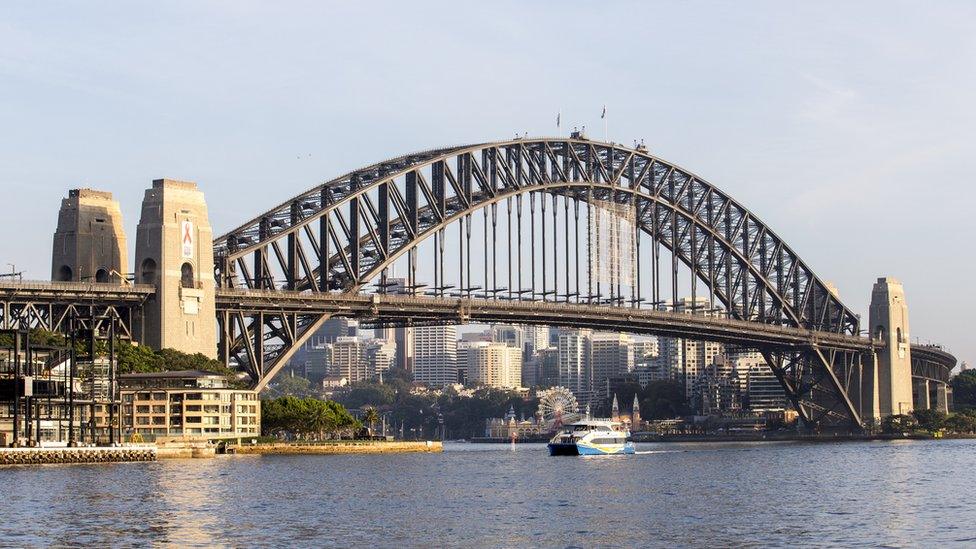Cassius Turvey: Mother's grief at killing that's shocked Australia
- Published
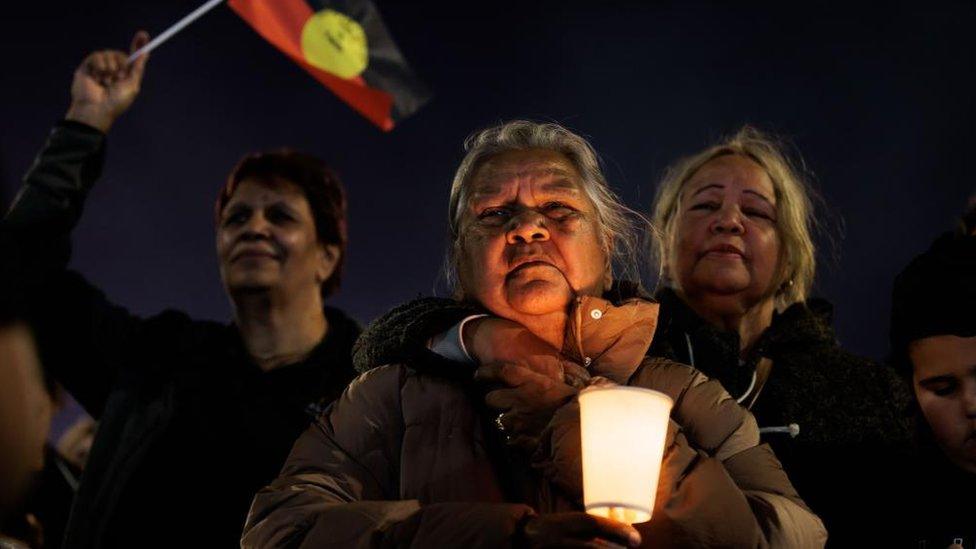
Vigils have taken place in Australia following the death of Cassius Turvey
"He was funny. He loved posing," Mechelle Turvey smiles as she shows me photos of her son Cassius.
There are photographs of little Cassius, taken a few years ago, attempting a Muhammad Ali pose - the legendary athlete he was named after.
"We were explaining to him why he was called Cassius," Ms Turvey says.
Warning for Aboriginal and Torres Strait Islander readers: this article contains images of someone who has died.
When Cassius was born 15 years ago, the family wanted to name him after a strong black man. His brother chose Cassius, the original name of boxer Muhammad Ali.
Mechelle shows me other photos - of Cassius at school, playing basketball, fishing and proudly holding a bucket full of candy one Halloween.
Cassius wanted to change the negative stereotypes about Aboriginal youth in Australia. Along with two of his friends, he set up a small business in order to reach out to neighbours and mow lawns.
Then Mechelle's face changes and her eyes well up.
"This is us when I held his hand for the last time," she told me in tears, showing me a photo of him lying in a hospital bed unconscious.
Four weeks ago Cassius was violently attacked on his way home.
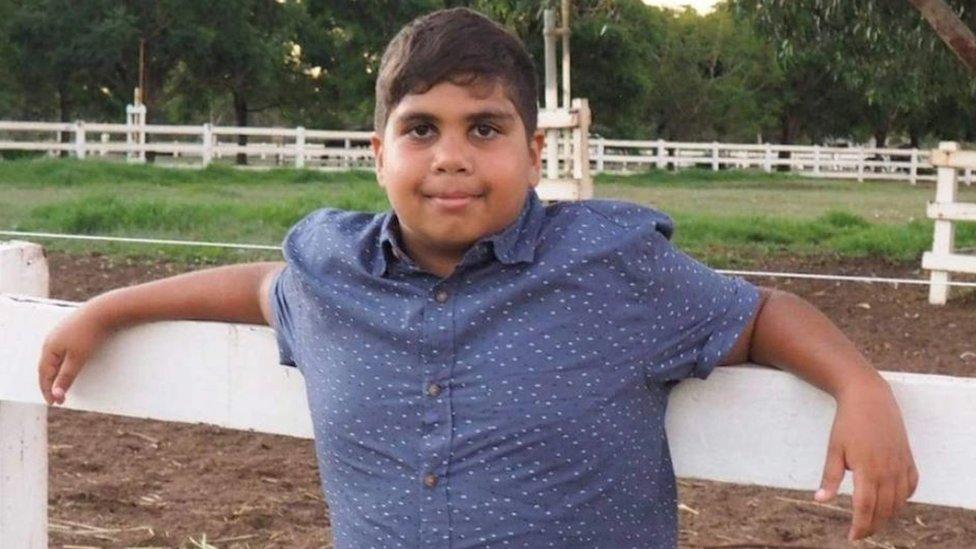
Cassius wanted to change negative stereotypes about Aboriginal Australians
Cassius was in his uniform, walking with friends, when a car pulled up. A stranger allegedly told the group to run - before chasing them down.
Police are investigating claims that the boys were racially abused. Officers believe Cassius was bashed with a metal pole.
"I couldn't move," Ms Turvey tells me when I ask her about the moment she found out. "I got a call saying he's been rushed to hospital."
Cassius was taken to hospital with serious head injuries. Doctors were unable to save him and he died 10 days after the attack.
Many Australians came to learn of the attack when they saw pictures of him lying in hospital, with a tube attached to his mouth.
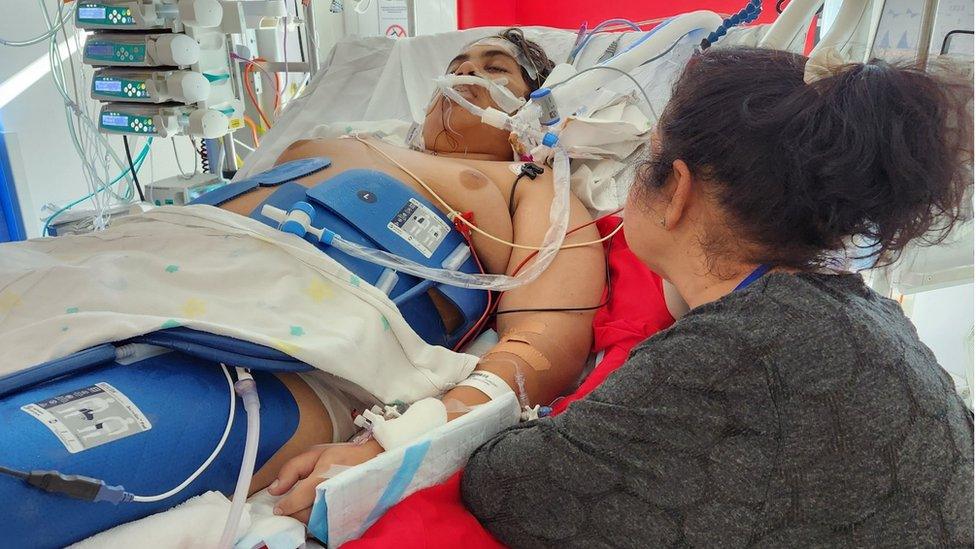
Cassius had serious head injuries and doctors were unable to save him
A 21-year old man has been charged with his murder.
"My question was why?" Ms Turvey tells me, crying. "This kid is amazing. Why would someone do that?
"My son never got in trouble in the community or with the police. It's devastating," she says.
Cassius's death shocked Australia and sparked a sense of national grief and anger. Prime Minister Anthony Albanese claimed the attack was "clearly" racially motivated.
And whilst Western Australia Police have urged the community not to speculate about the motivation behind the incident, and to allow the evidence to come out before the court, his death has brought to the fore yet again the unresolved issues around racism.
Aboriginal and Torres Strait Islander people suffer disproportionate rates of violence. Statistics show in some parts of the country they are six times more likely to be assaulted than non-Indigenous people., external
Thousands of people attended rallies and vigils across the country - events were also held in the US and New Zealand, demanding change and justice.
"This was broad daylight," Ms Turvey tells me. "This was for no reason. These were kids walking around."
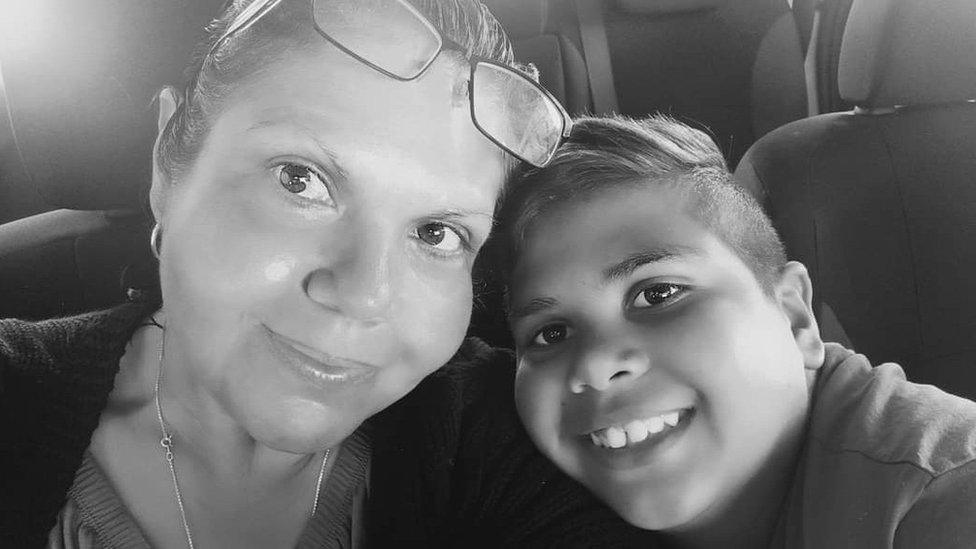
People have sent messages of support to Cassius' mother
Meghan Krakouer, the director of the National Suicide Prevention and Trauma Recovery Project, says: "I'm really angry because I see death."
Ms Krakouer has helped hundreds of first nations families deal with the aftermath of violence and discrimination. These tragedies, she says, evoke a generational trauma dating back to colonisation.
"I'm talking about little 11-year-olds passing away, about 19-year-olds passing away and being at bedsides when life support machines are turned off."
She's frustrated with the lack of political will to deliver meaningful change.
And while she hopes that Cassius's death could be a turning point - "It would be absolutely amazing if it is" - she's not optimistic.
Cassius' death felt personal to many families, some of whom were fearful for their children even before the attack.
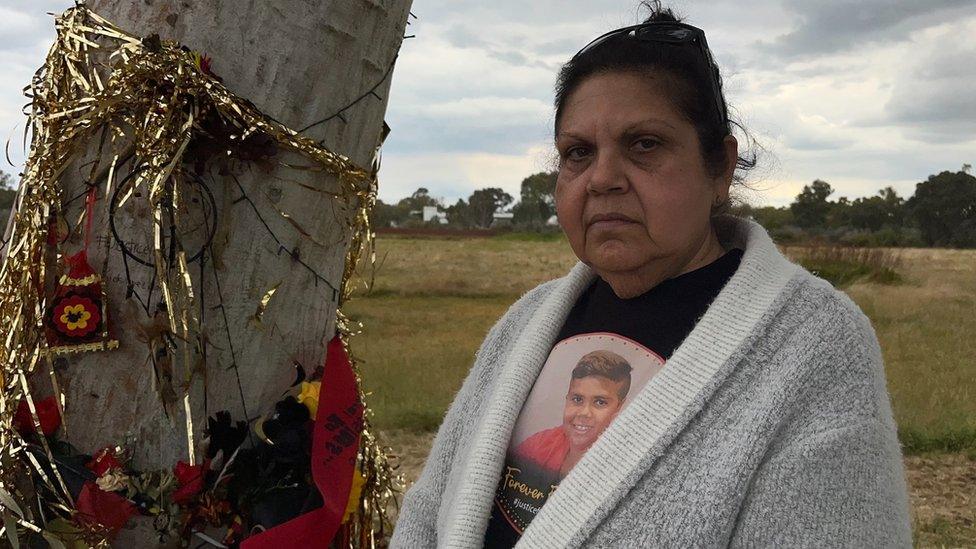
Mechelle Turvey's son Cassius was walking home when he was allegedly attacked
Emily Farmer is the mother of Juantah Paton, Cassius's best friend who was with him when he was attacked.
"I've always said to him make sure you keep your hands out of your pockets. Beware that people will stereotype you," Ms Farmer tells me.
"I just never thought they'd be violently attacked or chased to this extreme. You do worry about it, but you don't think in this day and age that this would happen."
Mechelle and her sister Robyn take me to what they now call Cassius's tree, the spot where the attack happened. A vigil has been set up there.
Every day, there are more messages of support. She is stopped by strangers who hold her hand and hug her. A shared grief for a young man with so many dreams - who was about to start his first part-time job.
"He wanted to work hard. He wanted to make money. He wanted to be famous," Ms Turvey says.
"He wanted to get his name out there. I think he's achieved that," she tells me.
How will she remember him?
"As my baby boy," she cries. "As my miracle child."
Related topics
- Published3 November 2022
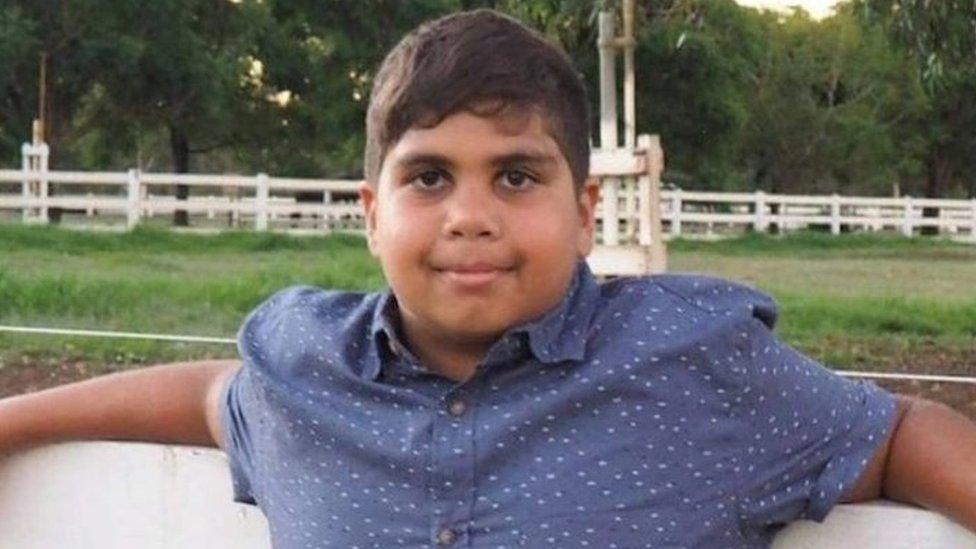
- Published22 October 2022
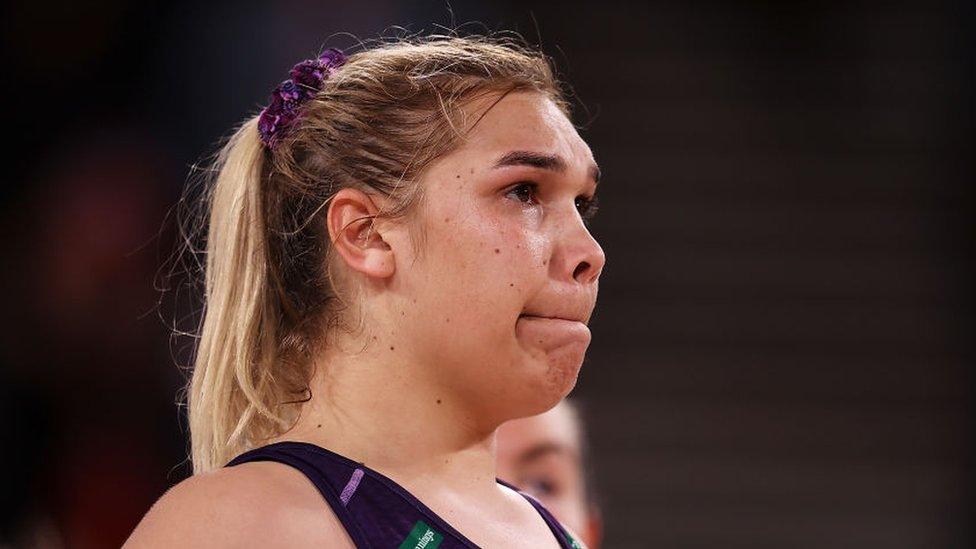
- Published11 July 2022
